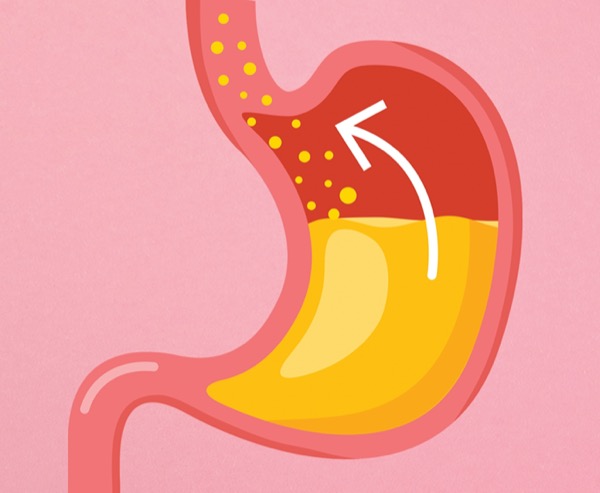Las Vegas—Postmenopausal women on estrogen-containing hormone replacement therapy have a significantly increased risk for gastroesophageal reflux disease and Barrett’s esophagus, according to a population-based study.
On multivariate analysis, the risks for GERD and Barrett’s esophagus were each more than sixfold greater in postmenopausal women who were taking HRT compared with those who were not (P<0.0001), according to an analysis led by Sherif Saleh, MD, an internal medicine resident at MetroHealth System, in Cleveland.
HRT containing estrogen “was a stronger risk factor for GERD and Barrett’s esophagus than smoking, alcohol, age greater than 65 years, obesity, and being Caucasian,” Dr. Saleh and colleagues reported at the 2021 annual meeting of the American College of Gastroenterology (abstract 40).
The analysis was conducted with the IBM Explorys database, which consists of aggregated electronic medical records from 77 million individuals in 26 healthcare systems in the United States. With data collected on more than 1 million postmenopausal women over a 20-year period, 96,880 women taking estrogen-containing HRT were compared with two other groups: 9,030 women taking progesterone-only HRT and 840,550 postmenopausal women who were not taking HRT.
Relative to those not taking HRT, the unadjusted risk for GERD and Barrett’s esophagus among those taking progesterone-only HRT was increased by about the same relative degree as in those taking estrogen-containing HRT. However, progesterone-only HRT was not associated with a significant increase in either stricture or esophageal cancer.
Other risk factors for GERD also were evaluated. Consistent with past studies, obesity, smoking, alcohol use and older age (>65 years) all were associated with a significantly increased risk for GERD in postmenopausal women in a univariate analysis (all P<0.0001).
In a multivariate analysis, estrogen-only HRT remained an independent risk factor for both GERD and Barrett’s esophagus. Progesterone-only HRT in this analysis no longer remained a significant risk factor. The relative association of estrogen-only HRT with GERD and its complications proved to be stronger than any other risk factor examined.
{RELATED-HORIZONTAL}Female hormones have been identified as a risk factor for GERD in the past. In the Nurses’ Health Study, for example, HRT overall as well as increased duration of estrogen use were associated with increased risk for GERD symptoms (Arch Intern Med 2008;168[16]:1798-1804). In addition, in a cross-sectional study using the Swedish Twin Registry, Helena Nordenstedt, MD, PhD, an associate professor in the Department of Global Public Health at the Karolinska Institute, in Stockholm, and her co-investigators linked HRT use in postmenopausal women with GERD (Gastroenterology 2008;134[4]:921-928). They found that ever users of estrogen-containing hormonal therapy had a 32% (95% CI, 1.18-1.47) higher risk for GERD than never users.
Among potential mechanisms of action, estrogen-containing HRT has been linked to a reduction in the basal pressure of the lower esophageal sphincter, which may facilitate reflux (Gastroenterology 1976;71[2]:232-234).
Noting that although HRT has been associated with symptoms of GERD in previous studies, Dr. Saleh said it has not consistently been associated with the complications of GERD, such as Barrett’s esophagus and cancer. This new study suggests that postmenopausal women taking estrogen-containing HRT who complain of GERD are at an increased risk for the major complications of this pathology.
As a result, he said, a calculation of the risk–benefit ratio of remaining on HRT should include consideration of the major risks, not just the adverse effect of symptoms on quality of life.
“This new, very interesting study corroborates our results from more than 10 years ago,” Dr. Nordenstedt told Gastroenterology & Endoscopy News, adding that these studies are potentially relevant to clinical decisions and management of patients with GERD.
—Ted Bosworth
Drs. Nordenstedt and Saleh reported no relevant financial disclosures.


